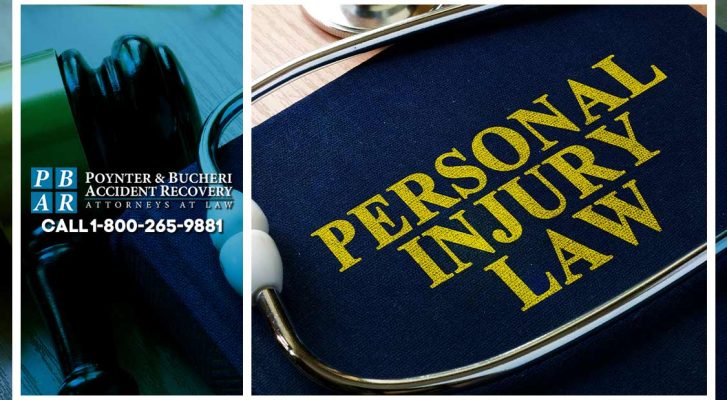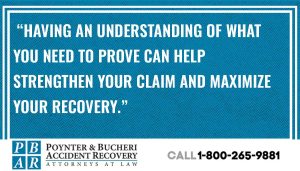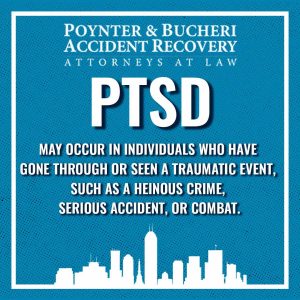
What Do You Have to Prove in a Personal Injury Claim?

If you have suffered an injury in an accident that was caused by someone else’s negligence, you may have grounds to file a personal injury claim seeking compensation. But what exactly does it take to prove a personal injury case and come away with a fair settlement?
Personal injury cases involve complex legal concepts like duty of care, breach of duty, causation, and damages. Having an understanding of what you need to prove can help strengthen your claim and maximize your recovery.
In this article, we break down the key elements of personal injury cases in straightforward terms.
Understanding Negligence in Personal Injury Cases

Negligence is an important concept in personal injury law. At its most basic, negligence refers to situations where someone fails to act responsibly, causing harm to another person or damage to property. This failure to act carefully is considered legally actionable as negligence if it results in injury or losses that could have been prevented with proper care.
Some key evidence that must be present for negligence to have occurred are: a duty of care owed by one party to another, a breach of that duty through failure to exercise reasonable care, actual harm or damage that occurred as a result, and proof that the breach of care caused the injuries or damages.
A negligence claim often requires the legal expertise of personal injury attorneys as the plaintiff must prove that a duty was owed, carelessness occurred in breach of that duty, and that the defendant’s negligent actions directly resulted in the plaintiff’s losses.
Establishing Liability
The first step in any injury or insurance claim is to present evidence that the other party was responsible and legally at fault and therefore liable for your damages.
You will establish liability by proving:
Duty of Care
The defendant (person or entity being sued) owed a duty of care to the plaintiff (injured party). This duty is a legal obligation for people and businesses to act reasonably to avoid causing harm to others. For example, drivers must obey traffic laws and drive cautiously to avoid collisions.
Breach of Duty
The defendant breached their duty of care through negligent actions. Negligence claims involve conduct that falls below the reasonable standard of care. For example, texting while driving could constitute a breach of the duty of road users to drive responsibly.
Causation
The defendant’s negligent breach of duty directly caused the plaintiff’s injuries. In other words, the injuries would not have happened “but for” the defendant’s careless actions. This connects the negligent conduct to the damages suffered by the plaintiff.
Proving Injuries and Damages
The second key component of a personal injury case is demonstrating what kinds of harm you suffered. This harm to the plaintiff must have resulted directly from the accident or incident caused by the defendant’s negligence.
Economic Damage
Economic damages in injury claims vary depending on the details of the case but typically involve quantifiable monetary losses like:
- Medical expenses (past and future)
- Lost wages
- Loss of earning capacity
- Property damage
Documenting these through evidence such as medical records, pay stubs, repair estimates, etc. is vital to recover compensation in court.
Non Economic Damage
Non-economic damages cover subjective, non-monetary losses such as:
- Pain and suffering
- Loss of enjoyment of life
- Emotional distress
- Loss of companionship
It can be more challenging to prove damages such as these, but a personal injury lawyer can help show their impact through demand letters, witness testimony, and evidence about your daily struggles.
Will the Negligent Party Face Punitive Damages?
In addition to economic damages and non economic damage, there are sometimes punitive damages awarded in an accident claim. Also known as exemplary damages, punitive damages are monetary awards meant to punish the defendant for egregious conduct and deter similar behavior in the future.
Unlike economic damages and non economic damages, which aim to compensate the plaintiff for losses like medical expenses and pain and suffering, they serve as a form of punishment for intentional or reckless actions of the responsible party that caused harm. Courts typically award these to the plaintiff in criminal cases or civil claims when the defendant’s conduct is deemed especially harmful, malicious, or grossly negligent.
Comparative Fault
Indiana follows a “modified” comparative fault rule. This means that if the injured person shares any blame for causing the accident, their compensation can be reduced by their percentage of fault. However, if evidence shows their fault exceeds 50%, they cannot recover anything.
An experienced personal injury attorney thoroughly investigates liability issues to build the strongest argument that shows evidence of the other party’s negligence. Aggressive representation maximizes compensation from the liable party.
What Are Some Common Personal Injuries?
While many types of injuries are eligible for personal injury claims, there are several that are frequently seen in Indiana court cases.
Here is a small list of some common personal injuries:
Fractures
These injuries can be as simple as a broken bone, or as serious as multiple fractures. One reason fractures are so common in personal injury claims is because they tend to be indisputable, given that an injured person with a fracture often had an x-ray taken by a neutral medical professional. This provides clear documentation for your medical records, as well as the extent of the injury, which is helpful evidence when recovering compensation in these personal injury cases.
Neck Injuries
Many personal injury claims involve a car accident, so it should be no surprise that neck injuries, like whiplash, are commonly cited in these claims. Neck injuries of all kinds can be highly debilitating and may lead an injured person to seek compensation with the help of a personal injury attorney for medical bills and/or lost wages after an accident.
Back Injuries
Much like neck injuries, back injuries can have a hugely negative impact on a person’s life. Even more common back injuries, like strains and sprains, could affect one’s ability to go about their daily activities. More serious spinal cord or thoracic spine injuries may cause paralysis and/or permanent nerve damage. This could lead families to seek maximum compensation in a personal injury lawsuit with the help of an attorney.
Traumatic Brain Injury (TBI)
Whenever someone takes a bump, blow or jolt to the head, they are at risk of traumatic brain injury. These types of injuries often occur in motorcycle, car, bike, or pedestrian accidents. They also may occur from accidents where someone is deprived of oxygen, like in a near-drowning accident. Most often, TBI leads to concussion.
However, it can also cause various lifelong health problems, including but not limited to memory loss, headaches, reduced language skills, mood swings, and fatigue. It’s crucial to keep track of any new or worsening symptoms in your medical records as evidence for your insurance claim.
Post-traumatic Stress Disorder (PTSD)

When it comes to personal injury, post-traumatic stress disorder is a common psychological injury cited by victims. PTSD may occur in individuals who have gone through or seen a traumatic event, such as a heinous crime, serious accident, or combat. Those who have been diagnosed with PTSD after an accident occurred often have nightmares or flashbacks, feelings of rage, sadness, or intense fear. These symptoms often make it difficult for the person to relate to or be around others, hold down a job or engage in a relationship. Witness testimony from a medical expert can offer a detailed account of how the victim’s life has changed to prove that they deserve compensation.
Does Medical Malpractice Count as a Personal Injury?
Medical malpractice claims arise when a healthcare provider fails to meet the standard of care, resulting in harm or physical injury to a patient. These claims can include misdiagnosis, surgical errors, medication mistakes, or negligence in providing treatment.
A medical malpractice claim arises when a healthcare provider fails to meet the standard of care, resulting in harm or injury to a patient. These claims can include misdiagnosis, surgical errors, medication mistakes, or negligence in providing treatment. If you believe you’ve been a victim of medical malpractice, it’s crucial to seek legal guidance to understand your rights and pursue compensation after suffering injuries and losses due to the negligent act.
If you believe you’ve been a victim of medical malpractice, it’s crucial to seek legal guidance from an attorney to understand your rights, prove your case, pursue compensation, and gather evidence for your physical pain, medical expenses, and losses.
Why You Need an Attorney
As this overview shows, proving a valid injury claim can get complicated fast.
A personal injury attorney has the legal skills and resources to:
- Gather police reports, medical records, and other evidence
- Consult with doctors, specialists, and accident experts
- Challenge insurance adjuster low-ball offers
- File a lawsuit if warranted
- Negotiate the full and fair settlement amount you deserve
Without an attorney, injury victims often struggle to provide evidence to prove their case, get steamrolled by the insurance company or insurance adjusters, and end up with inadequate compensation.
Contact Personal Injury Experts | Poynter & Bucheri Accident Recovery
If you or a loved one has suffered harm due to another’s negligence, contact our office for dedicated legal help. Our personal injury lawyers will fight to make you whole again. We can provide evidence, expert witnesses, accident reconstruction, and more to prove that another party is responsible for your physical injuries in your personal injury lawsuit. Proving damages owed to you can be challenging, but we have experience negotiating outside of court and offering sufficient evidence to a judge or jury inside a courtroom.
Request a free case review by contacting Poynter & Bucheri Accident Recovery online or calling the firm at 1-800-265-9881.
